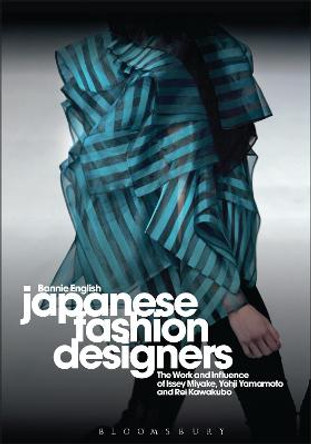Description
Through cutting-edge analysis of contemporary style tribes, Japanese Fashion Cultures challenges widely held notions of gender relations and European style imitation in Japan.
About the Author
Masafumi Monden is Lecturer in Japanese Studies at the University of Western Australia.
Reviews
Masafumi Monden's fascinating and important book, Japanese Fashion Cultures, will be of great interest to everyone interested in fashion, gender, globalization, and youth culture. His research on young Japanese men and their attitudes towards fashion is especially significant, as it calls into question persistent stereotypes about how men and women are assumed to engage with fashion. -- Valerie Steele * Director and Chief Curator, The Museum at FIT, New York City, USA *
From the possibility of subversion in lace-trimmed Lolita outfits and petite pinafores straight out of Alice in Wonderland, to the enchantments of Milkboy dandyism, Masafumi Monden's Japanese Fashion Cultures offers up a delightful combination of case studies that reveal the very best thinking in fashion theory today. -- Laura Miller, Eiichi Shibusawa-Seigo Arai Endowed Professor of Japanese Studies and Professor of Anthropology, University of Missouri-St. Louis, USA
Masafumi Monden's book is a gem. By bringing together and exploring colourful examples from Japan's vibrant street culture and fashion, he artfully demonstrates just how individualistic, innovative, and original the Japanese are. He also dismantles myths and misperceptions about gender relations, sexuality, and social relations in Japan. -- Brian J. McVeigh, University at Albany, SUNY, USA
Monden provides a rich and detailed examination of the subtle intricacies of gendering and sexuality in contemporary Japanese fashion. While exploring the extremes of Tokyo street fashion he is able to illuminate some of the mechanism behind the perplexingly divergent ways to be a man or a woman in today's Japan. -- Toby Slade, University of Tokyo, Japan
Fashion trends are inherently transitory and intrinsically fragmented. Yet Monden sees sufficient continuities and commonalities within the world of contemporary Japanese fashion to warrant a search for significant social and cultural insights. In his four case studies, he examines fashion magazines aimed specifically at young men, the reasons behind the style choices of two female 'idol' singers, the seeming discontinuities between outward appearance and hardheaded individuality present in the heroine of a well-received film, and the long-term success of 'Ivy Style' among both men and women in the world of modern Japanese fashion ... his work upends conventional expectations by intuiting, for example, that fashion-conscious young Japanese men might well be rejecting the blue suit, white shirt and tie style typical of the conventional Japanese 'salaryman' rather than exhibiting a kind of feminized masculinity ... Summing Up: Recommended. Upper-division undergraduates and above. -- L. A. Makela, emeritus, Cleveland State University * CHOICE *
Here is fascinating insight into the 'boyish charm' of Japanese menswear labels such as Milkboy. ... Suddenly, as an American, I am given new insight into the semiological logic of a style which one might have assumed to be uniquely American- the logic of 'dressing down' without actually dressing down; indeed, 'dressing down' to demonstrate 'old money' status. ... I for one have learned a lot. -- Ted Polhemus * Fashion Theory: The Journal of Dress, Body and Culture *
For anyone interested in the development of Japanese fashion, contemporary Japanese styles or more broadly the ways in which men and women negotiate the fluid nature of fashion or the representation and negotiation of gender through fashion, this is a valuable and fascinating read. * Costume *
Book Information
ISBN 9781472536211
Author Masafumi Monden
Format Hardback
Page Count 216
Imprint Bloomsbury Academic
Publisher Bloomsbury Publishing PLC
Series Dress, Body, Culture
Weight(grams) 481g










